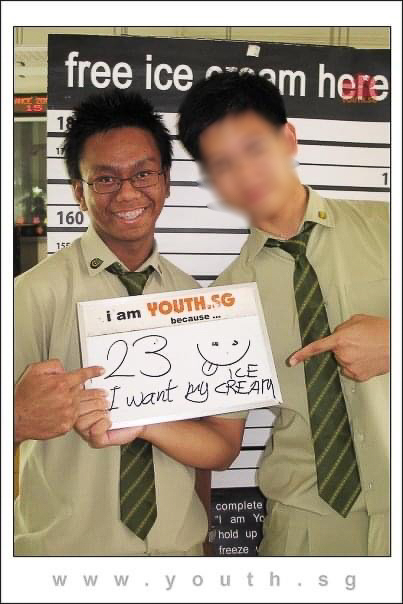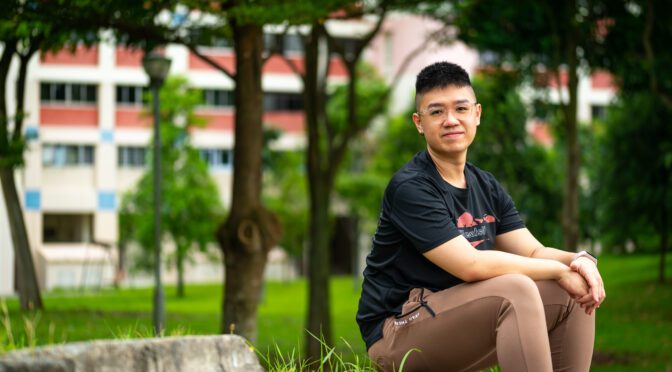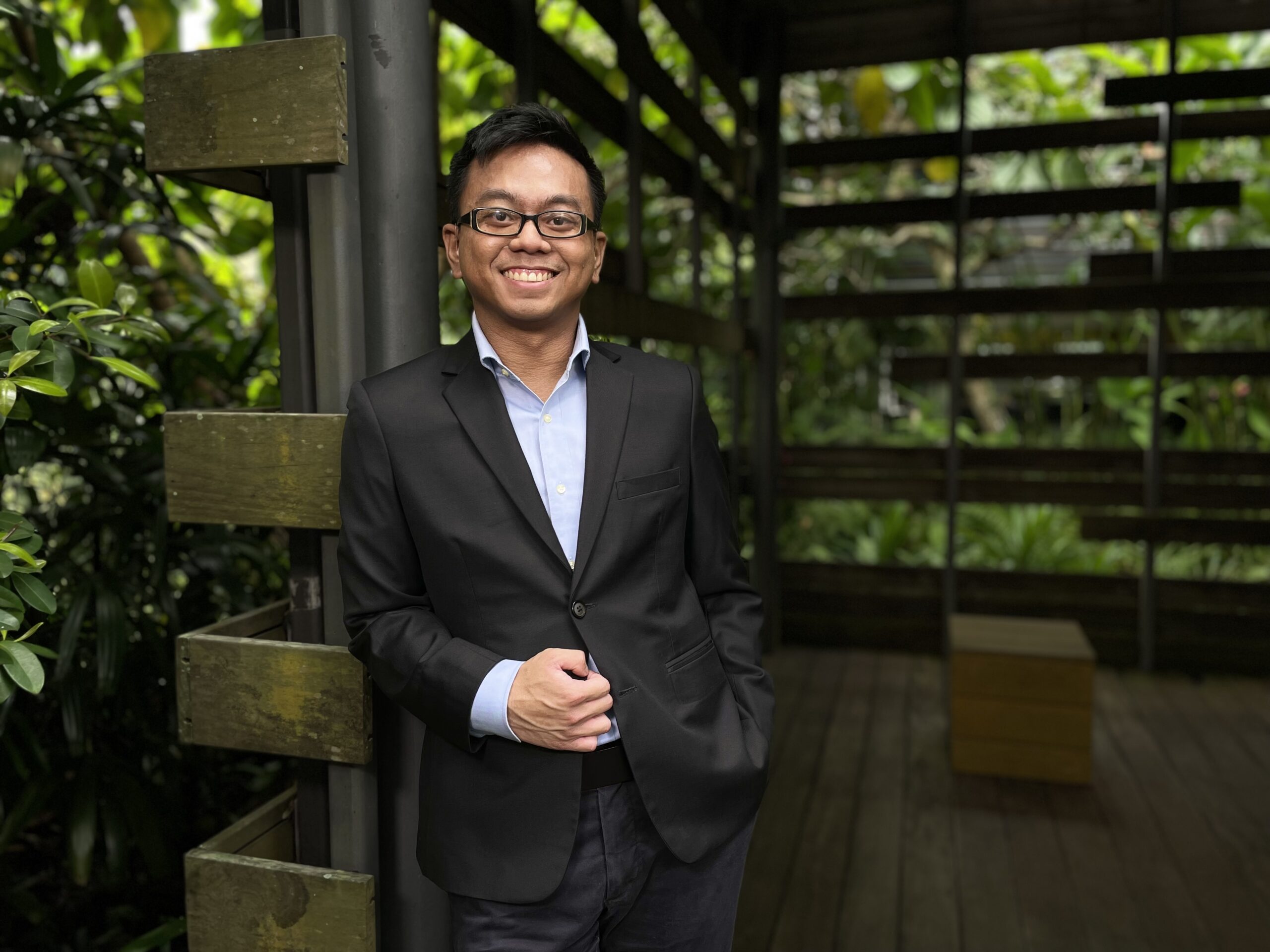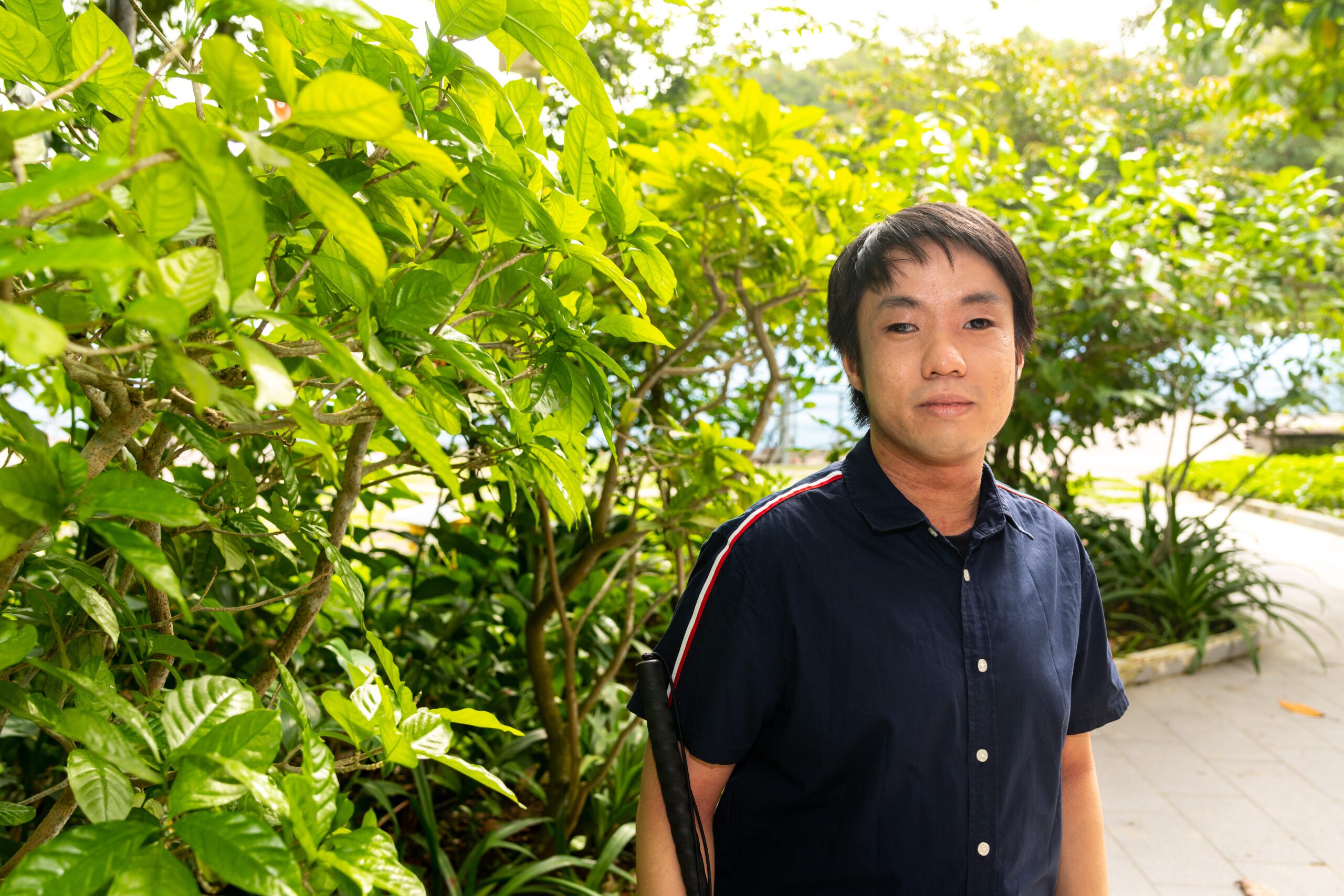The importance of self-advocacy
National Service would provide a watershed moment in my life. My disability gave me a free pass to exempt, but there was an undeniable desire to serve the nation. I thought it would be a good experience for me to build my mental fortitude and get a taste of working life. My Physical Employment Standard status was ‘E’. Whereas other combat-fit soldiers would spend three months in Pulau Tekong undergoing their basic military training, I spent about a week on the remote island learning how to march, and sat in lectures after lectures about the army and its operations. I know, it’s the dream life of every unwilling conscript. Then, I was posted to my unit where I would be a clerk. I still remember vividly my first day when I reported for duty. Already nervous and feeling like a fish out of water, I was stumped by a question my officer asked: ‘What is your medical condition or disability?’ I knew the answer, very well: all through my formative and adolescence years I had been bullied, called names and judged because of it. Hitherto, no one outside my inner circle had ever looked me in the eye and asked me this question so plainly: ‘What is your disability?’ In that moment it was as if all my wits had left me: I didn’t know how to respond to my superior. In fact, my voice quivered, and I began to stammer. Here I was, a junior college graduate with good grades (and award-winning DotA player), yet I struggled with the utterance of four simple words: ‘I’m hard of hearing’. Noticing my discomfort, she then said: ‘It’s okay. Tell me about your disability, so that I know how I can help you.’
Her reply left an indelible mark on me. My officer didn’t want to know about my disability so she could cast judgements about my ability. She wanted to know what accommodations she could make so I could thrive and excel in my own capacity. That was the moment I realised the onus was on me to advocate for myself.
My two years of National Service were rather smooth sailing. I made mistakes and I apologised for them. As a national serviceman, I was a bystander, an observant of office politics and was never involved in them. I also acquired interpersonal skills, having to interact with staff officers who were older than I was. At the turn of the decade, I began the next chapter of my life as a biomedical engineering university student. I skipped the main freshman orientation, and joined only my course’s, which comprised a lecture on what to expect as well as a physical tour. I remember the pangs of anxiousness I had walking into the lecture theatre, which was filled with new faces. I fought opposing thoughts for a while, vacillating between being on my own and making new friends. There was a trio already seated together who seemed friendly enough. I plucked up the courage to approach them.
After the initial pleasantries, and a few minutes into our conversations, into my heart there came a thought that I wanted to tell them that I was disabled. All through national service, I had been advocating for myself, and I didn’t want to let the fear of rejection and discrimination stop my resoluteness. Had they winced at my revelation or had they shown the slightest disdain, I was prepared to disabuse them of their notions. I would tell them that it’s not difficult to be friends with me. At times I would need them to repeat what they were saying, but that was the only inconvenience they would have. I would tell them it’s not disgusting to be friends with me. I think my primary school classmates probably harboured a feeling of disgust towards me: they might have seen me as dirty or spoilt or contagious. Even with my resolve, that moment between thought and actual mouthing of the words was fraught with hesitation. In a split second, something came over me and I just nervously blurted it: ‘Just to let all of you know, I’m actually hard of hearing.’
Fortunately, I didn’t have to launch into a whole speech. They were immediately accepting of my disability, and we became chummy right from the get-go. Following the orientation, we were brought to a tutorial room, and each of us had to do an introduction before the entire cohort of eighty-plus students. This time my anxiety was tenfold. At this point, I had only disclosed my disability to small groups of people, never publicly. But I decided that it was important for people to know that I was disabled. There I stood, working up the courage to apprise a full room of strangers, from my course mates to lecturers, not knowing how they would react. Maybe one of them was a former bully who picked on kids like me. But I did it anyway. After I had done so, I found that I cared not about the repercussions or what others would say behind my back. There was a calmness of sheer relief. I was proud of myself for doing that. Some of my course mates came up to me afterwards and thanked me for my sharing.
Read: Abused Because of Cerebral Palsy, but Still Wesley Wee Rises Above, Finding Happiness and Love in the Face of Adversity



